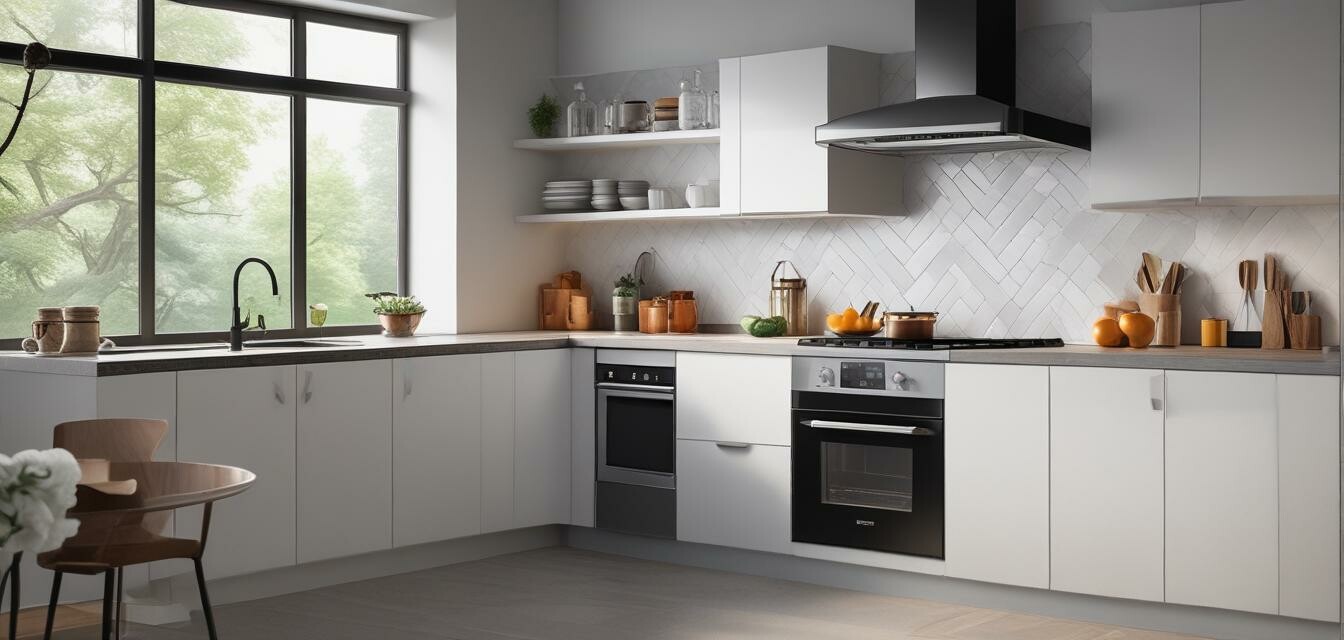
The Impact of Smart Appliances in Energy Savings
Key Takeaways
- Smart appliances reduce energy consumption through advanced technologies.
- Integration with smart home systems enhances efficiency and convenience.
- Energy-efficient appliances contribute to lower utility bills and environmental sustainability.
- The future of kitchen appliances is focused on innovation, connectivity, and resource conservation.
As the world embraces a more sustainable way of living, smart appliances have become a cornerstone in modern kitchens. Not only do they offer convenience and advanced features, but they also play a significant role in reducing energy consumption. This article explores how these high-tech devices are leading the way in energy savings and shaping future kitchen designs.
How Smart Appliances Work
Smart appliances utilize technology to monitor and adjust their performance, ultimately enhancing efficiency. Here’s how they contribute to energy savings:
- Real-time energy monitoring: Many smart devices come equipped with energy metering capabilities, allowing users to track their consumption and manage usage more effectively.
- Adaptive features: Smart appliances can automatically adjust their settings based on user habits, optimizing energy use during peak and off-peak hours.
- Remote control: Being able to control appliances from a smartphone app means you can turn them off when not in use, preventing wastage.
Types of Smart Appliances Saving Energy
There’s a variety of smart appliances designed to enhance kitchen efficiency. Below is a table that highlights common types of smart devices and their energy-saving features:
| Appliance Type | Energy-Saving Features |
|---|---|
| Smart Ovens | Preheat optimization and self-cleaning cycles that reduce energy usage |
| Smart Refrigerators | Temperature regulation and alerts for door left open |
| Touchless Faucets | Automatic shut-off to prevent water waste |
Integration with Smart Home Systems
Many smart appliances can connect to broader smart home ecosystems, providing seamless control and management options. Through central hubs, users can:
- Set schedules for when appliances operate to take advantage of off-peak energy rates.
- Monitor energy usage from any device, improving awareness of consumption patterns.
- Receive maintenance alerts, ensuring appliances are running at peak efficiency.
The Financial Benefits of Smart Appliances
Investing in smart appliances doesn't just promote sustainability; it can also lead to significant financial savings. Here are ways smart appliances can help reduce energy bills:
- Lower utility costs: Energy-efficient models typically use less power, directly impacting your monthly energy bill.
- Rebates and incentives: Many utility companies offer rebates for energy-efficient appliances, offsetting initial costs.
- Increased home value: Homes equipped with modern, energy-efficient appliances often attract higher market values.
Pros
- Significant energy savings and reduced utility expenses.
- Enhanced functionality with remote control capabilities.
- Positive environmental impact through reduced energy consumption.
Cons
- Initial investment costs can be high for advanced appliances.
- Dependence on internet connectivity for full functionality.
- Learns from user habits which may take time to optimize settings.
Future Trends in Smart Appliances
The future of kitchen technology looks promising as manufacturers focus on enhancing functionality and sustainability. Expect to see:
- Increased integration with renewable energy sources.
- More advanced AI capabilities to predict user preferences and optimize energy use.
- Wider selection of energy-efficient appliances with innovative designs.
Stay informed on the latest trends in high-tech kitchen appliances by visiting our News and Trends section for updates on innovations and new releases.
Conclusion
Smart appliances are transforming how we approach energy savings in our homes. By integrating advanced technologies, these kitchen devices not only enhance convenience but also play a pivotal role in promoting sustainability. Investing in smart appliances is not just beneficial for your wallet but also for the environment, paving the way for a smarter and greener future in kitchen design.